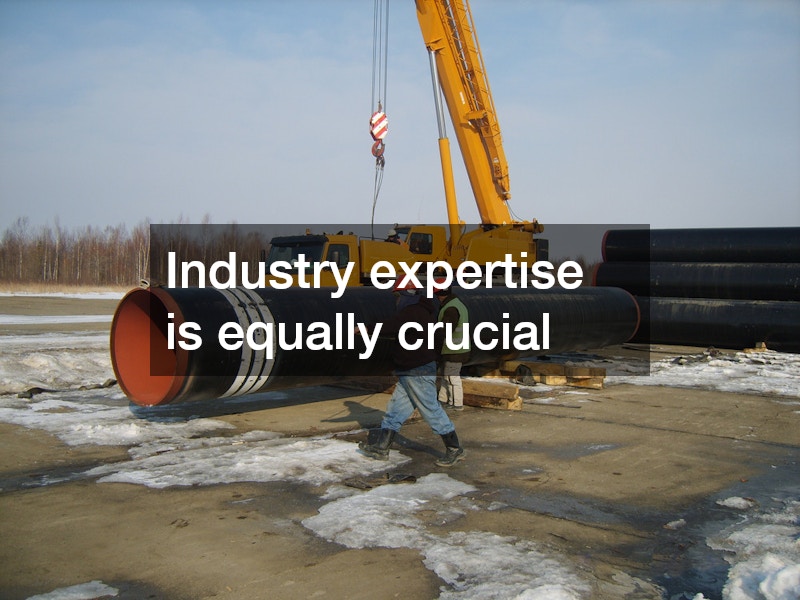Choosing the right crane company can significantly impact the success and efficiency of your construction project. Professional crane services are integral to heavy lifting tasks, materials handling, and ensuring a safe and streamlined construction process. With so many providers available, making an informed choice requires understanding not just the equipment but also the company’s track record, reliability, and approach to safety.
Taking the time to evaluate these factors upfront can prevent costly delays and complications down the line. This article will guide you through the essential factors to consider when selecting a crane provider, focusing on experience, equipment quality, licensing, and service support.
Assessing Experience and Industry Expertise
When it comes to selecting a crane company, experience in the construction sector is paramount. Seasoned companies bring a wealth of knowledge and a proven track record of handling projects similar to yours. For example, a company with 20 years of experience can demonstrate reliability and in-depth understanding of construction dynamics and challenges.
Industry expertise is equally crucial. Crane companies that specialize in your specific type of construction work—whether it’s high-rise buildings, bridgework, or infrastructure projects—will be better equipped to handle the nuances and demands of your project. Specialized crane companies often have staff trained in the latest industry innovations and best practices.
Moreover, experienced companies typically have a stronger network and relationships with equipment suppliers, allowing for quicker response times and access to better resources. They understand the local regulations and standards, which saves time and avoids potential regulatory issues.
Evaluating Equipment Quality and Safety Standards
The quality of equipment used by a crane company directly affects the efficiency and safety of the operation. Modern and well-maintained equipment minimizes the risk of breakdowns and delays. Hence, it’s imperative to inquire about the age and condition of the fleet when evaluating potential crane service providers.
Safety standards are non-negotiable in the construction industry. Ensure that the company adheres to the highest safety protocols, including routine safety checks and certifications from recognized organizations. A company that demonstrates a commitment to safety through certifications, such as ISO standards, can be seen as a reliable partner.
Additionally, the technological aspect of the equipment should not be ignored. The incorporation of modern technologies, such as telematics, helps in monitoring equipment health and performance, thus preventing mishaps and ensuring project timelines are met. This aspect shows the company’s commitment to utilizing advanced solutions for optimal project execution.
Checking Licensing, Insurance, and Certifications
Licensing and certifications are essential for validating the credibility and legitimacy of crane companies. They indicate that the company complies with federal and state regulations, which vary by region. Always request the necessary paperwork before engaging a company to avoid legal issues down the line.
Having proper insurance is critical for a crane company. Comprehensive insurance coverage protects against potential damages or accidents that may occur during the project. This feature not only safeguards your interests but also reflects the company’s professionalism and preparedness for unforeseen events.
Certifications from reputable industry bodies enhance the company’s credibility further. These accreditations serve as assurance of the company’s commitment to maintaining industry standards and keeping its workforce skilled and knowledgeable. Partnering with a certified company assures you of quality service and adherence to best practices.
Understanding Service Availability and Project Support
Service availability is a crucial consideration, especially for projects with tight deadlines. Choose a crane company that can offer timely support and has the flexibility to adjust to project schedules. An available and responsive company is indispensable during critical project phases.
Project support is another facet to evaluate. A reputable crane company will offer comprehensive services beyond just equipment rental. This includes project planning, logistics support, and on-the-ground project supervision, ensuring smooth operations and adherence to schedules.
In essence, the level of customer service can greatly influence the success of your project. Companies that provide dedicated support and maintain effective communication throughout the project lifecycle demonstrate a commitment to client satisfaction and partnership-oriented service delivery.
Selecting the right crane company involves a thorough assessment of several key factors, including experience, equipment quality, licensing, and service support. Companies that excel in these areas are invariably better positioned to meet the demands of your construction project successfully. By prioritizing these considerations, project managers can ensure efficient, safe, and timely project completion.




